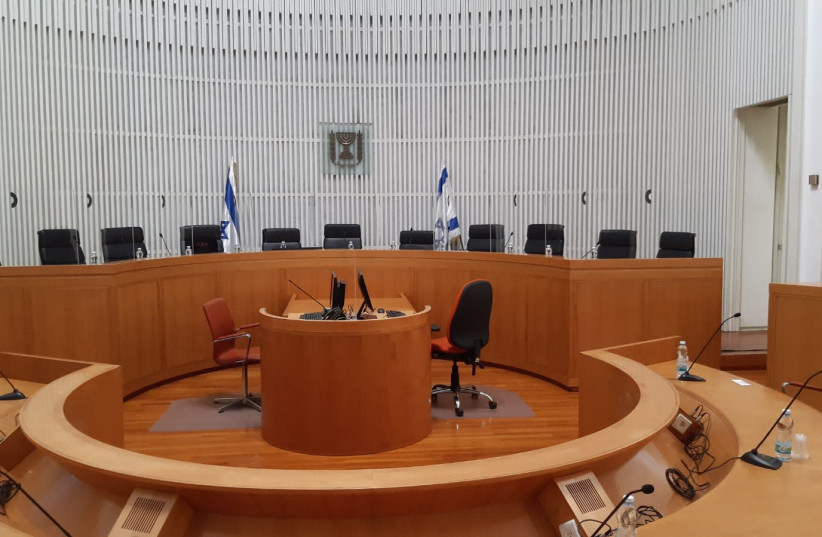In May 2019, a Palestinian woman attacked a Haredi man who was walking through a public marketplace area in the Old City of Jerusalem. A police CCTV camera captured portions of the incident.
According to allegations by right-wing legal aide group Honenu, the Palestinian woman grabbed the man from behind, put her hands around his throat and started to choke him.
Honenu said that when the man tried to resist and pry himself loose from her grip, that he ended up falling and incurring a minor wound.
Honenu said that the woman was interrogated by police and admitted that she attacked the man and that it was because she could tell from his haredi sidelocks that he was a Jew.
Law enforcement closed the case.

Deputy state attorney rejects appeal
Honenu appealed the closure of the case to Deputy State Attorney Liat Ben Ari.
Ben Ari recently issued her decision rejecting the appeal, citing issues that were not connected to the Palestinian woman’s guilt or innocence. This seemed to confirm that the prosecution, at least in a vacuum, would agree that the Palestinian woman is guilty.
In fact, the reasons that Ben Ari gave for rejecting the appeal were that the incident occurred three years ago and that the Palestinian woman might be hard to prosecute given that she lives in the West Bank controlled by the Palestinian Authority.
The first reason, the passing of three years, is strange because plenty of criminal cases are brought long after three years, and because presumably, the original complaint was filed long ago. Meaning, if three years have passed, it may be the fault of the prosecution.
What is worse, the fact that a suspect is Palestinian is almost never a reason not to indict. Palestinians are indicted by the thousands on a yearly basis by IDF Prosecution.
Additionally, some Palestinians are indicted in Israeli civilian courts when they commit crimes within the Green Line, especially if there is a mix of Israeli-Arab and Palestinian suspects involved.
Arresting and trying often involves sending in mixed IDF and Shin Bet (Israel Security Agency) units into Palestinian villages for night arrest raids and sometimes lead to broader altercations.
In comparison, someone who individually attacks an individual Jewish civilian, including choking them, may pose greater danger.
The Jerusalem Post has learned additional details about the case, which make the prosecution decision look less problematic.
First, the fact pattern of the incident and various other classified evidentiary items may point to mixed motivations by the Palestinian woman.
The place and manner in which she attacked a larger man with no weapon did not match up with the spectrum of classical terror scenarios.
Although the woman was questioned initially by the police, she was provisionally released pending a decision on the allegations, as would be routine for an attack that did not come close to endangering the man’s life.
When it became clear that she would need to be questioned further, the issue already came up about whether she could be located and whether it was worth the resources given the limited harm to the haredi man.
The fact that, usually, Palestinians who are prosecuted are arrested for crimes they committed in the West Bank may have also played a factor, though by itself that would not stop prosecuting a more violent crime.
All of that said, not everyone in the state prosecution might have closed the case initially, and each prosecutor does have some personal discretion.
However, by the time the case arrived to the prosecution appeals department, adding in that three years had passed reduced the chances of successfully prosecuting the case and made dragging the Palestinian woman back into the incident less appealing.
According to the existing regulations of the State Attorney’s Office, absent a much more violent incident, the tendency would be to close such cases.
None of this is emotionally satisfying when thinking about whether justice was done on a philosophical level, but in the legal foxhole of the Israeli prosecution, sometimes complex realities sway the outcome decisively.
